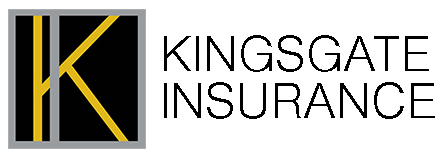Why Business Owners Can’t Afford to Overlook Ordinance or Law Coverage
Understanding Coverage A, B, and C and the Value They Bring to Your Commercial Insurance Policy
As a business owner, you are always looking for ways to protect your investment and ensure the long-term stability of your enterprise. While a standard commercial insurance policy may seem like enough, it’s crucial to be aware of the potential gaps in your coverage. One often overlooked but vital aspect of comprehensive protection is ordinance or law coverage.
In this blog post, we’ll explore the importance of ordinance or law coverage for business owners and dive into the three types of coverage (A, B, and C) with real-life examples to help you understand how each can provide an essential safeguard for your business.
What is Ordinance or Law Coverage?
Ordinance or law coverage, also known as “building code upgrade coverage,” is an essential addition to your commercial insurance policy that covers the costs associated with adhering to updated building codes and ordinances after a loss. As building codes evolve and become stricter, repairs or reconstruction may require costly upgrades that a standard insurance policy does not cover.
Let’s now examine the three types of ordinance or law coverage:
Coverage A: Loss to the Undamaged Portion of the Building
In the event of partial damage to your property, local ordinances may require you to demolish the entire structure, including the undamaged portion. Standard insurance
policies typically cover only the cost of repairing the damaged portion. This is where Coverage A comes into play, covering the value of the undamaged section that must be demolished.
Example: A fire damages 40% of your retail store, but local ordinances require that any building with more than 30% damage must be entirely demolished and rebuilt. Your standard policy will cover the cost of repairing the 40% damage, but without Coverage A, you’ll be responsible for the costs associated with demolishing and rebuilding the remaining 60%.
Coverage B: Demolition and Debris Removal
When local ordinances require the demolition of your entire building, you’ll also face the cost of removing the debris. Coverage B addresses this specific expense, covering the costs of demolition and debris removal not included in your standard policy.
Example: After a major storm, your warehouse is deemed unsafe and must be demolished. The standard insurance policy will cover the damage caused by the storm, but the costs of demolishing the structure and removing the debris are not included. With Coverage B, these additional expenses are taken care of, saving you a significant amount of money.
Coverage C: Increased Cost of Construction
Building codes are continually updated to improve safety, energy efficiency, and accessibility. After a loss, you may be required to rebuild your property according to these new codes, which can result in higher construction costs. Coverage C fills this gap by covering the increased cost of construction to meet the current building codes.
Example: A fire severely damages your restaurant, and you need to rebuild. The updated
building codes require the installation of a more advanced sprinkler system and wheelchair-accessible restrooms. These upgrades are not covered by your standard policy, but with Coverage C, you can cover these additional expenses, ensuring your new building meets the latest safety and accessibility standards.
The Bottom Line: Don’t Leave Your Business Exposed
As a business owner, it’s your responsibility to protect your investment and ensure the continuity of your operations. While a standard commercial insurance policy offers a foundation of protection, ordinance or law coverage is a crucial addition that can save you from substantial financial losses. By understanding the importance of Coverage A, B, and C, and including them in your insurance policy, you’ll be better prepared for the unexpected and have peace of mind knowing that your business is fully protected. Talk to your insurance agent today about adding ordinance or law coverage to your commercial insurance policy and safeguard your business against the ever-evolving landscape of building codes and local ordinances.







Leave a Reply
Want to join the discussion?Feel free to contribute!